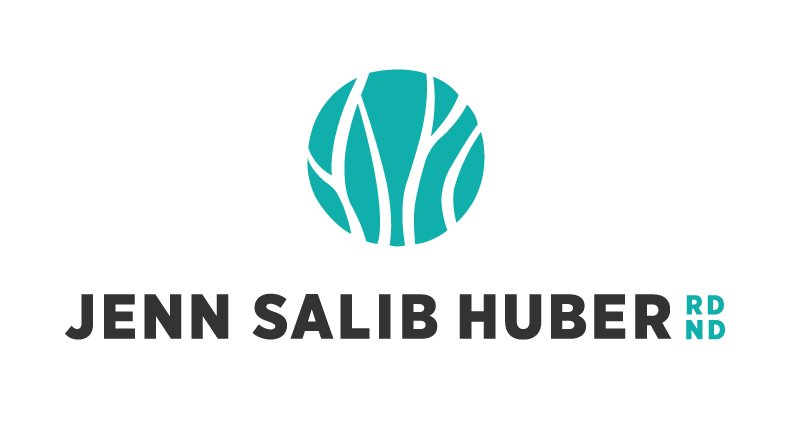Building a Healthy Microbiome!
Talk about the "microbiome" is definitely trending and on the rise! And many people are gaining interest in gut health and how to keep their gut bacteria happy. But first, let's clear up some terminology. The human microbiota includes ALL of the different types of microbial species that live in or on the human body including bacteria, fungi and viruses. The human microbiome is made up of the genes inside these microbial cells. While the terms are related, they aren't interchangeable!
Did you know?
Trillions (!) of cells make up the human microbiota, outnumbering our own cells tenfold!
While the gut houses the largest population of gut microbiota, there are many others including the skin and respiratory tract! The placenta even has it's own microbiome!
The genetic information contained in the microbiota (aka microbiome) interacts with our own cells and genes in ways we're just beginning to understand. The immune system is one system that greatly benefits by having large populations of healthy bacteria. This is why associations have been found between healthy microbiota and resistance to colds and flus.
Our gut bacteria play a role in nutrition as well, producing important vitamins such as vitamin K.
Benefits of a healthy microbiota extend well beyond gut health. Research has found associations between mood, weight, asthma, allergies and inflammation just to name a few.
How to Build a Healthy Microbiome
It probably begins in the womb! Several studies have found that taking probiotics during pregnancy can reduce an infant's risk of developing eczema (See here, here and here ) which suggests that the Mom's bacterial influence starts before birth. How best to do this? Current studies have looked at the effect of supplementing with Lactobacillus species, but hopefully future research will look at a variety of strains found in fermented foods as well.
Breastmilk is Best! We all know breastmilk is best for babies, but researchers have found that the oligosaccharides (type of sugar) found in breastmilk are excellent food for our microbiota, especially Bifidobacteria infantis, a particularly beneficial strain of bacteria. How neat is that? Read more about breastmilk and the microbiome here.
Get more Plants on your Plate. Our gut bacteria need a fuel source, and fiber-rich plants are the best. The best foods are those high in resistant starches; these foods "resist digestion" by humans, serving as an excellent food source for our microbiota. Read all about adding resistant starches to your diet here!
Include a Variety of Fermented foods. Fermentation was once a primary method of food preservation, which had the side benefit of providing us with a reliable and regular source of dietary probiotics. A lot has changed in the past century and we now rely more on refrigeration, canning, and pickling to preserve our food. Fermented foods include yogurt, kefir, kombucha, sauerkraut, kombucha, and fermented vegetables (read more HERE). Add them to your diet on a mostly daily basis and include a wide variety. Diversity rules when it comes to our microbiome.
Limit Exposure to Antibiotics and Anti-Microbials. Antibiotics can be life-saving, but almost everyone agrees that they're overused in both humans and animals. A significant portion of the world's antibiotic are used in agriculture, (that number is estimated to be 75% in Canada) so do your best to choose meats from animals grown without the use of antibiotics. When possible, the best way to do this is to connect with a local farmer who isn't raising animals on a commercial scale. The rules around antibiotic use in agriculture are changing over the next few years as the government tries to reduce antibiotic resistance, which will hopefully mean safer choices for consumers.
How do I Know if my Microbiome is Healthy? We're really just starting to learn about the types of microbiota that make up a healthy microbiome so no one can say with certainty what is healthy and what isn't. Some bacteria may not be beneficial in the strictest sense, but neither are they pathogenic. Others may be more concerning, contributing to symptoms of IBS and IBD. Common symptoms of a disrupted microbiota, aka 'Dysbiosis' can include:
Diarrhea and/or Constipation
Gas/Belching
Bloating
Reflux or Indigestion
Rectal Itching
Recurrent vaginal infections such as yeast infections
If you think you have dysbiosis, talk to your health care team about how best to support a healthy balance of bacteria.
Looking for nutrition advice for women you can trust?
Sign up for my newsletter!
Book a free call to see if working with me 1-1 is right for you or sign up for my online program Beyond The Scale - How to Undiet Your Life After 40.
Join my FREE Facebook Group for support and inspiration – Everyday Intuitive Eating
